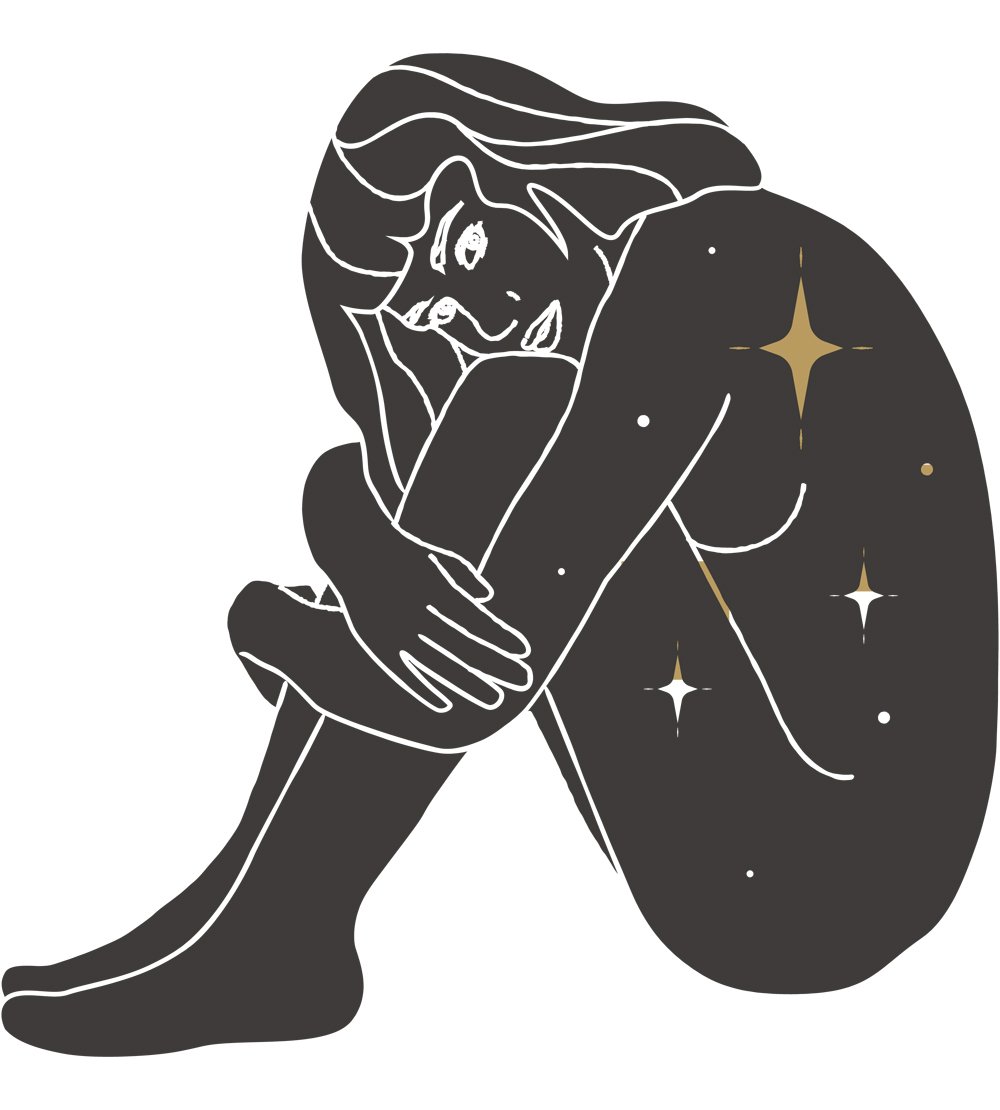This discreet newsletter will teach you how to make him cum hard, give freaky oral sex & make him scream your name in bed. Click here to get it.
 Sex can be awesome and should feel good. But sometimes sex can cause pain, whether it’s before, during, or after having sex. Painful sex is so common that 30 percent of women reported having pain during a sexual encounter, according to the 2009 National Survey of Sexual Health and Behavior. There are a number of common reasons for painful sex, and there’s even a medical name for the condition: dyspareunia. You can often fix, or at least reduce, the problem of painful sex. If the painful sex is one that you can’t fix on your own, you should definitely speak with your doctor.
Sex can be awesome and should feel good. But sometimes sex can cause pain, whether it’s before, during, or after having sex. Painful sex is so common that 30 percent of women reported having pain during a sexual encounter, according to the 2009 National Survey of Sexual Health and Behavior. There are a number of common reasons for painful sex, and there’s even a medical name for the condition: dyspareunia. You can often fix, or at least reduce, the problem of painful sex. If the painful sex is one that you can’t fix on your own, you should definitely speak with your doctor.
Here are some of the reasons sex might be painful. The good news is that you can almost always deal with the issues that cause sex to be painful so that you can have enjoyable sex.
Side note: If you are currently struggling to orgasm during sex or masturbation, then you may want to learn about the Easy Orgasm Solution. It will teach you how to have multiple vaginal and full body orgasms during sex and masturbation. It works even if you currently struggle to orgasm during sex or when masturbating. You can find out more here.
1. First Time Sex
When you have sex for the first time, you’re stretching your hymen, which could cause painful sex. Or you might not have been aroused enough before the penetration happened. When you are aroused, your vagina lengthens, making room for a penis. You also become lubricated when you’re aroused. If you’re not sufficiently lubricated, intercourse will probably hurt from friction caused by thrusting.
Make sure you are aroused before intercourse next time through plenty of foreplay and ask your guy to start slowly when he’s thrusting. You can let him know if the sex is painful, or you can give him directions on what to do, such as telling him to slow down a bit. You can also let him know when something starts to feel good so that he can keep doing that. Once you have more sex and discover what you like, the painful sex should stop. If not, you might have a condition that requires a trip to the gynecologist.
2. Too Dry

If you aren’t producing enough lubrication before intercourse happens, it could cause painful sex. You might wish to have sex, but you just aren’t producing enough natural lubrication. This could happen, even after lots of foreplay. Maybe you took a warm bath, which can cause dryness, or maybe you’re taking allergy pills or birth control pills, both of which can also lead to dryness. For some women, their bodies just never produce enough natural lubrication to make sex comfortable, and that’s fine!
The solution is to use lube. There are different types, so you might need to experiment to see which one you like best: water, silicone, or oil-based lube.
Intense Squirting: You can learn how to squirt effortlessly and with intense pleasure if you use the right techniques. If you're interested in learning how to squirt (alone and with your partner), you may want to check out the Squirting Magic guide.
- Water-based: This is the most common type of lube and is safe to use with condoms and sex toys. It is also the easiest to clean up. The downside is that water-based lubes can dry up easily, so you might need to add water or saliva when that happens.
- Silicone-based: This type of lube lasts longer than water-based lube, but you can’t use this type with sex toys made from silicone. You can use silicone-based lube with latex condoms. Silicone is more difficult to wash off of bedding.
- Oil-based: This type of lube can’t be used with any latex or rubber. It is thick — think Vaseline — so it is messy to clean up.
3. Tense
If you’re anxious and tense about having sex, penetration will probably be painful because you aren’t lubricated enough, meaning that sex can hurt. The solution here is to relax and ditch your sexual anxiety. Maybe you just need a good massage.
And that could lead to foreplay. If your man works with you and engages in plenty of foreplay, you should become wet and ready for sex. But the foreplay needs to be exciting for you. If rubbing your breasts doesn’t do it for you, maybe you will be excited by watching porn together or by having him give you oral sex. Once you start to become excited, your anxiousness will start to melt away, and you’ll start having blood flow to the genitals, which is what makes you wet.
4. Infection
Infections, such as a yeast infection, can cause painful sex because your vagina is in pain, and will stay that way until you treat it. Yeast infections cause unbearable itching and burning, and there is vaginal discharge. If your vagina hurts, so will intercourse. You can treat a yeast infection by buying over-the-counter medication. If that doesn’t work, you might have some other type of infection that requires a doctor’s care, this includes bacterial infections. Read more about that.
If you’re getting frequent yeast infections, you might wish to prevent them from happening. Make sure you clean your vaginal area well during your shower or bath, and then dry it completely. Some women use a blow dryer to accomplish this. Don’t douche, however. That can actually lead to yeast infections by washing away the vagina’s natural protectors.
5. Sexually Transmitted Infections (STIs)

Sexually transmitted infections (STIs), also called sexually transmitted diseases (STDs) and venereal diseases (VDs), require a trip to the doctor to get rid of. There are several types, and if you have any of them, sex can hurt. In fact, you shouldn’t have sex at all when you have an STI.
- Chlamydia: You might have no symptoms with this STI, but if you do have symptoms, they include abnormal vaginal discharge and burning when you pee. It’s important that you are treated if you have chlamydia because it could lead to pelvic inflammatory disease (PID), which can cause infertility or issues with pregnancy. A lab test from a doctor can confirm whether you have it.
- Genital herpes: This STI causes pain and itching in your vagina from the genital sores. If you get genital herpes, it stays dormant in your system and flares up from time to time. During a flare-up, sex could be painful. Although you can’t cure genital herpes, you can take medication that can ease some of the pain during a flare-up.
- Genital warts: This is also called HPV. Symptoms are visible warts on your vagina. You can also have itching, discharge, and bleeding, but some strains of HPV create no symptoms at all without a PAP test. Your doctor would need to treat this condition. It sometimes goes away on its own. Your doctor will advise you on your treatment method.
- Gonorrhea: This STI might have no symptoms. But if there are symptoms, they typically include green or yellow discharge from the vagina, pelvic pain, burning when you pee, bleeding between periods, and spotting after intercourse. A doctor who can prescribe antibiotics w cure gonorrhea. If you aren’t treated for gonorrhea, it could lead to PID.
- Syphilis: With this STI, you develop sores on your vagina or on your mouth. If left untreated, a rash develops on your hands and on the soles of your feet. If it’s still left untreated, it can cause severe damage to the heart and brain. Usually, penicillin (or another antibiotic if you’re allergic to penicillin) gets rid of this.
- Trichomoniasis: This is the most common STI in women. You might have no symptoms with trichomoniasis, but if you do have symptoms, they usually include greenish-yellow discharge from the vagina that is frothy and that smells bad, pain when you pee, vaginal itching, vaginal irritation, and painful intercourse. Your doctor can prescribe an antibiotic to treat this.
6. Vaginismus
When you have a condition called vaginismus, you have a tightening of the vagina that makes it difficult or impossible for penetration to occur. What happens is the vaginal muscles involuntarily tighten, even when you’re not aware it’s happening. If you try to have intercourse, it will be painful. Sometimes the PC muscle group tightens so much with vaginismus that it forms a sort of wall, making any sort of penetration impossible. In other forms of vaginismus, it’s possible for penetration to happen, but the penetration will be painful.
He will lust for you: It's easy to make a man desire you and turn him on, when you use the right kind of dirty talk. If you'd like to learn how, then you may want to check out the Wild Dirty Talk Guide. Inside, you'll learn how to confidently talk dirty along with the lines and phrases that work best for making him deeply desire you.
Vaginismus becomes a mind/body issue. When penetration becomes a possibility, the mind signals the PC muscles to contract, preventing penetration. Vaginismus can be a condition that’s always happened with you, called primary vaginismus, or it can be a condition that develops after already having had pain-free sex. That type is called secondary vaginismus.
Vaginismus must be treated for it to stop, and it is highly treatable. If it isn’t treated, it will worsen, and pain during sex will continue. If intercourse is attempted, it will only become more and more painful, and the mind will object more strongly to the notion of intercourse. With vaginismus, the body anticipates pain will happen, and this causes fear and anxiety. The body then involuntarily tightens the vaginal muscles. If sex can happen, it will be painful. The pain reinforces the body’s response to the fear. The body then starts bracing itself for sex, and eventually the person with vaginismus avoids sex altogether.
Treatment involves retraining the body, the PC muscles, in particular, to react differently to the anticipation of intercourse. Treatment involves pelvic floor exercises so that control over those muscles is achieved. There will also be exercises that involve insertion training, pain elimination techniques, and exercises to help people with vaginismus deal with any emotional difficulties that might be leading to the barrier. Women can work at home on the exercises under the guidance of a doctor, and the chances of getting rid of pain during sex are high.
7. Penis Hitting the Cervix

Men often brag about penis size — the larger the better. But in truth, a penis can be too large, so large that pain during sex is the outcome. Most vaginas can expand to handle a huge penis. But sometimes, the penis can just feel too big, and this causes pain during sex. This reason for painful sex can be rectified by a simple position change or a change in your partner’s technique. You can ask your man to slow down, or you can get on top so that you can control what’s happening, so that there will be no more pain during sex.
Knowing your cycle can also help since sex is more likely to be painful around and during your period, when your cervix is lower and harder.
Pain during sex is a sign from your body to change something. It typically isn’t something to worry about. But if the pain continues, it’s important to speak with your doctor or gynecologist.
Orgasm Every Time. Easily. Here’s How...
I want to tell you about my friend Karen.
Karen came to me one day. She was hysterical.
She told me that her marriage was falling apart because she and her husband didn’t have satisfying sex.
Every time they were intimate, Karen was faking her orgasms. It turns out she couldn’t orgasm during sex.
In fact...
She never had an orgasm in her entire life. Not one!
This left her feeling embarrassed and ashamed.
Even worse...
She stopped wanting sex with her husband, slowly driving him away, and...
Almost destroying her marriage. Thankfully...
It turns out that there is a simple solution for women who struggle to orgasm, whether you are having sex or masturbating.
I shared the process with Karen.
After she followed the simple process, she could barely come to terms with how...
Quickly and dramatically her sex life changed.
We met up a few months later and...
She would not stop talking about it,
“I thought I was one of those women who couldn’t orgasm. I used to think I was ‘broken’ and ‘unfixable.’ This saved my sex life, and that saved my marriage.”
Even if you currently struggle to orgasm during sex or while masturbating, this process will also work for you.
And best of all, you don’t need to do anything weird or uncomfortable to start having the best orgasms and sex of your life.


Leave a Reply